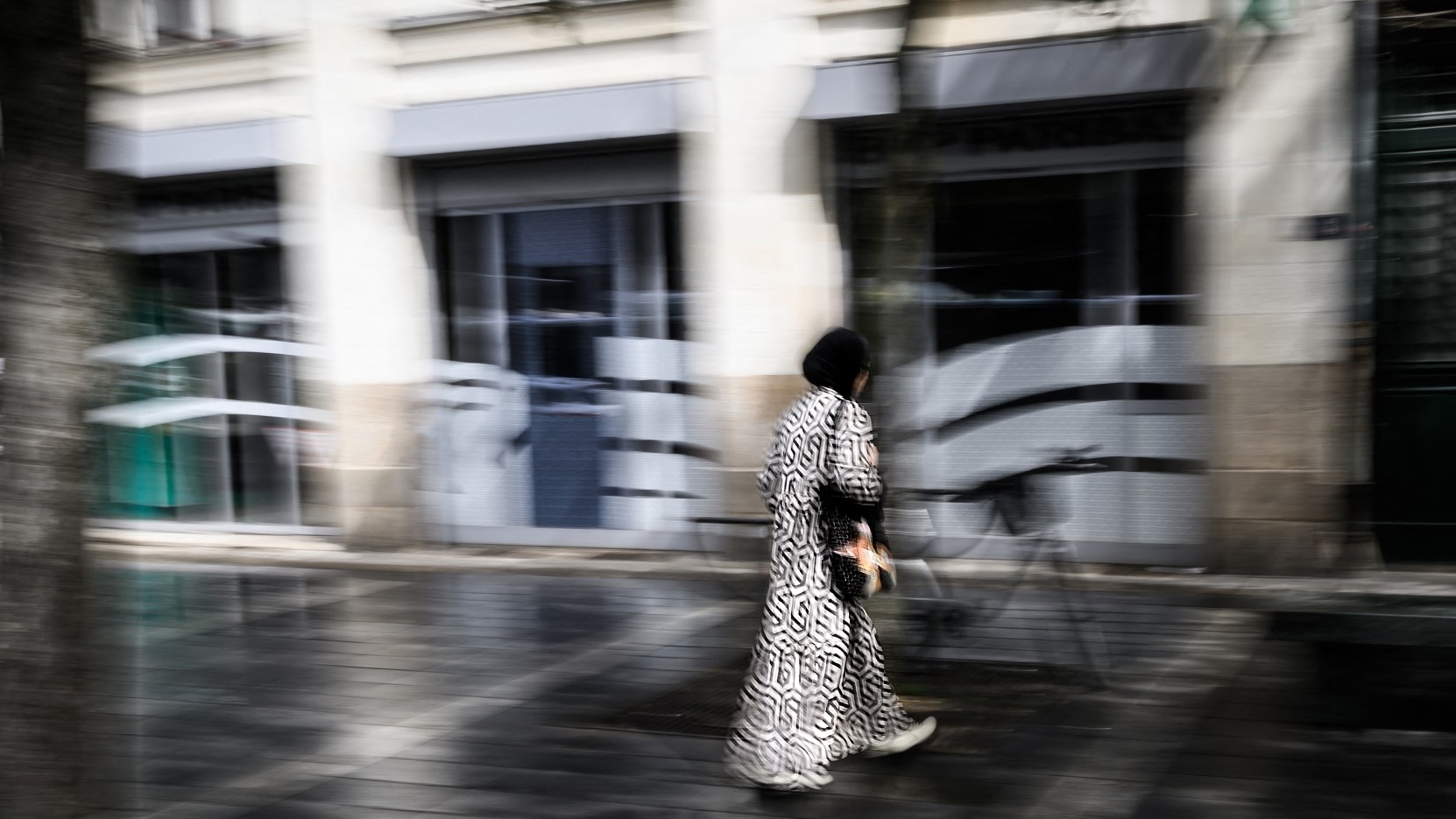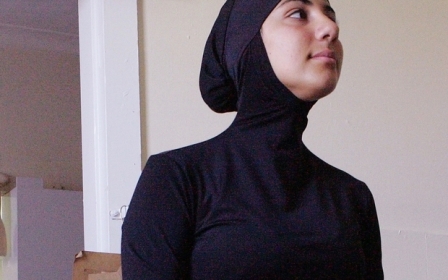Why is France so obsessed with controlling Muslim women's bodies?

Earlier this month, France’s top administrative court upheld the government’s decision to ban abayas in schools, after a Muslim rights group had argued that the measure was discriminatory.
In doing so, the court crushed the last remaining sliver of hope for protecting fundamental freedoms and restoring justice for Muslim women in the country.
The French government has justified the abaya ban on the basis of the constitutional principle of secularism. But it is difficult to visualise how a handful of children wearing abayas poses a threat to France’s secularism. According to AJ+, the number of pupils who wear abayas in school represents less than 0.00005 percent of all students in the country.
Since the beginning of the academic year, dozens of schoolgirls have been sent home for wearing abayas. Among those targeted were a 15-year-old wearing a Japanese kimono, and a girl wearing a large T-shirt and pants. The French state has embarked on a disconcerting, patriarchal journey of controlling how loose or long a dress should be - all in the name of secularism.
In determining whether a piece of clothing contravenes secularism, the abaya ban stipulates that teachers should assess the pupil’s general “behaviour”. According to human rights lawyer Nabil Boudi, this implicitly legitimises discrimination based on race and religion.
Stay informed with MEE's newsletters
Sign up to get the latest alerts, insights and analysis, starting with Turkey Unpacked
“If my name is Samira and I am wearing a kimono or abaya, it is religious clothing; but if my name is Sophie and I wear the same kimono, then it’s not religious clothing,” he told BFM TV.
In 1989, the same court ruled that forbidding headscarves at school was a flagrant violation of fundamental freedoms, noting that all pupils should be able to access education regardless of their religious beliefs. This displeased the French government, and parliament subsequently passed a law in 2004 forbidding all religious symbols in schools, including headscarves. Since then, France has continued legislating Muslim women’s bodies, regulating what they can or cannot wear.
In 2010, France passed a law banning full-face veils, such as niqabs and burqas, in the streets. The UN Human Rights Committee has said that this legislation constitutes a violation of human rights.
In 2016, some beaches in southern France banned the burkini, a modest form of swimsuit traditionally worn by Muslim women. Many were outraged upon the publication of a photograph showing French police forcing a Muslim woman at the beach to strip down.
Imperial tradition
The saga did not end there. This summer, the country’s top administrative court upheld the French Football Federation’s decision to bar women from wearing headscarves. The abaya ban thus fits into France’s legal history of undressing Muslim women.
The court’s decision is a perfect demonstration of how different state institutions work together to uphold discrimination. The irony is that secularism requires a strict separation between church and state, meaning that the state should not in principle interfere with religious affairs.
This attitude reflects a patronising view, assuming that Muslim women do not know what is right for them, do not know how to be free, and need to be taught
The ban also displays how French state institutions work together to uphold institutional racism, fitting into a long imperial tradition of subjugating Muslim women’s bodies.
France’s obsession with such regulation dates back to the colonial era. European travellers and colonisers have long been obsessed with the veil. Colonialism has never been solely about economic exploitation; it also encompasses political and ideological domination.
In 1959, anti-colonial author Frantz Fanon wrote the following about French colonial rule in Algeria: “If we want to destroy the structure of Algerian society, its capacity for resistance, we must, first of all, conquer the women; we must go and find them behind the veil where they hide themselves and in the houses where the men keep them out of sight.”
The unveiling of Muslim women has thus been a central feature of colonialism, following the fallacy that colonial powers had the duty to “civilise the inferior race”.
This “civilising mission” presupposes that Muslim women don’t know how to be free, and that they need to be saved from their own “backwards” culture and religion.
White feminism
During the occupation, French colonial authorities forced Algerian women to unveil in the name of their own “freedom”, yet raped and tortured them at the same time.
This historical colonial framework is still reflected in today’s policies, including the implementation of an exclusionary feminism.
More concerning is the silence from the mainstream feminist movement in France. There is no doubt that controlling women’s bodies and legislating how they can or cannot dress is anti-feminist. Yet, the movement in France has been conspicuously silent when discrimination targets Muslim women.
Key feminist activists and authors in France have not only failed to support Muslim women but ironically even supported their subjugation in the name of feminism.
French feminist icon Elisabeth Badinter wrote in 2009 of Muslim women who wear the full-face veil: “Are you not aware that you arouse mistrust and fear? …Why not go to Saudi Arabia or Afghanistan where no one will ask you to show your face?”
Another example of exclusionary and scornful white feminism is the group Femen, which has held demonstrations calling on Muslim women to “get naked”.
This attitude reflects a patronising view, assuming that Muslim women do not know what is right for them, do not know how to be free, and need to be taught. It is an exclusionary form of feminism that is extremely harmful.
Western feminists should embrace an intersectional view and understand that Muslim women are able to define what feminism is for themselves. They are free political agents who can set the terms of emancipation for themselves, rather than being forcibly liberated.
The views expressed in this article belong to the author and do not necessarily reflect the editorial policy of Middle East Eye.
Middle East Eye delivers independent and unrivalled coverage and analysis of the Middle East, North Africa and beyond. To learn more about republishing this content and the associated fees, please fill out this form. More about MEE can be found here.






